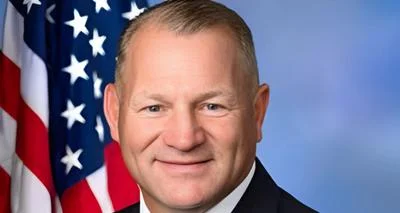The House Appropriations Committee has released the Fiscal Year 2026 appropriations bill for the Labor, Health and Human Services, Education, and Related Agencies Subcommittee. The legislation will be considered in subcommittee on September 2 at 5:00 p.m., with a live stream available on the Committee’s website.
Subcommittee Chairman Robert Aderholt stated, "As you may know, this subcommittee is responsible for the largest non-defense expenditure in the federal government. Therefore, it presents one of the greatest opportunities for us to reevaluate our spending priorities to ensure taxpayer dollars are being spent responsibly, in order to provide for critical services in healthcare, workforce development, and education – all while eliminating waste and cutting out politically motivated programs being pushed by non-elected bureaucrats. Even last year, we were dedicated to getting government spending under control. But now, it’s particularly encouraging to have a partner in the White House that shares this commitment. The Trump Administration, through its Department of Government Efficiency (DOGE), has already begun working with agencies to realign spending where it should be, helping us build on that shared momentum for fiscal responsibility. I thank Chairman Cole and my colleagues for their collaboration on these efforts, and I look forward to the continued progress this Committee can make in restoring trust with the American people as we responsibly allocate taxpayer dollars. While we still have a ways to go, I believe this bill lays a strong foundation for transparency and fiscal accountability."
Chairman Tom Cole added, "We are investing taxpayer dollars where they matter most - into programs that deliver real results for the American people. This bill prioritizes cutting-edge biomedical research, strengthens our medical supply chains and biodefense infrastructure, and ensures support for rural hospitals and public health programs. With each measure, we reaffirm that Making America Healthy Again is not just a slogan, but a promise. These investments protect the well-being of the most precious and vulnerable among us: America’s children, seniors, and those with disabilities. President Trump’s agenda to end progressive overreach and the weaponization of government against constitutional and parental rights is advanced in this legislation. Every dollar is directed toward initiatives that truly strengthen our communities, students, and workforce. Chairman Aderholt’s leadership once again puts our country on a stronger, steadier path forward."
The proposed legislation allocates $184.5 billion in discretionary funding for Fiscal Year 2026—a reduction of $13.7 billion or about 7 percent compared to Fiscal Year 2025 levels. The bill supports more than 100 program eliminations or reductions as part of efforts aligned with President Trump’s administration goals.
Key provisions include $100 million for an initiative focused on prevention programs in rural communities as well as telehealth resources; renaming AmeriCorps as America First Corps; prioritizing national service activities related to America250; and renaming Workforce Pell Grants as Trump Grants.
The bill also eliminates several federal offices such as the Office of Federal Contract Compliance Programs consistent with recent executive orders from President Trump regarding merit-based opportunity; continues longstanding prohibitions such as preventing federal funding from being used for abortion except under certain conditions; supports changes to federal student loan management; prohibits funding schools engaging in antisemitic conduct or discrimination against religious groups; maintains limitations on advocacy related to Second Amendment restrictions; prohibits implementation of independent contractor rules from prior administrations.
In addition to domestic policy changes—including streamlining behavioral health programs—the proposal includes $48 billion dedicated to biomedical research intended partly as a response to international competition from China. More than $3 billion would be provided for strategic preparedness response efforts relating to biodefense infrastructure.
The legislation also addresses border protection issues by changing support structures around refugee services while increasing requirements around sponsor vetting procedures for unaccompanied minors.
Other measures involve reducing duplicative agency functions such as closing out certain mediation services or eliminating specific research agencies like AHRQ while focusing Centers for Disease Control funding more directly on communicable disease rather than broader social issues.
A summary of the bill along with its full text can be found through resources linked by the House Appropriations Committee.








